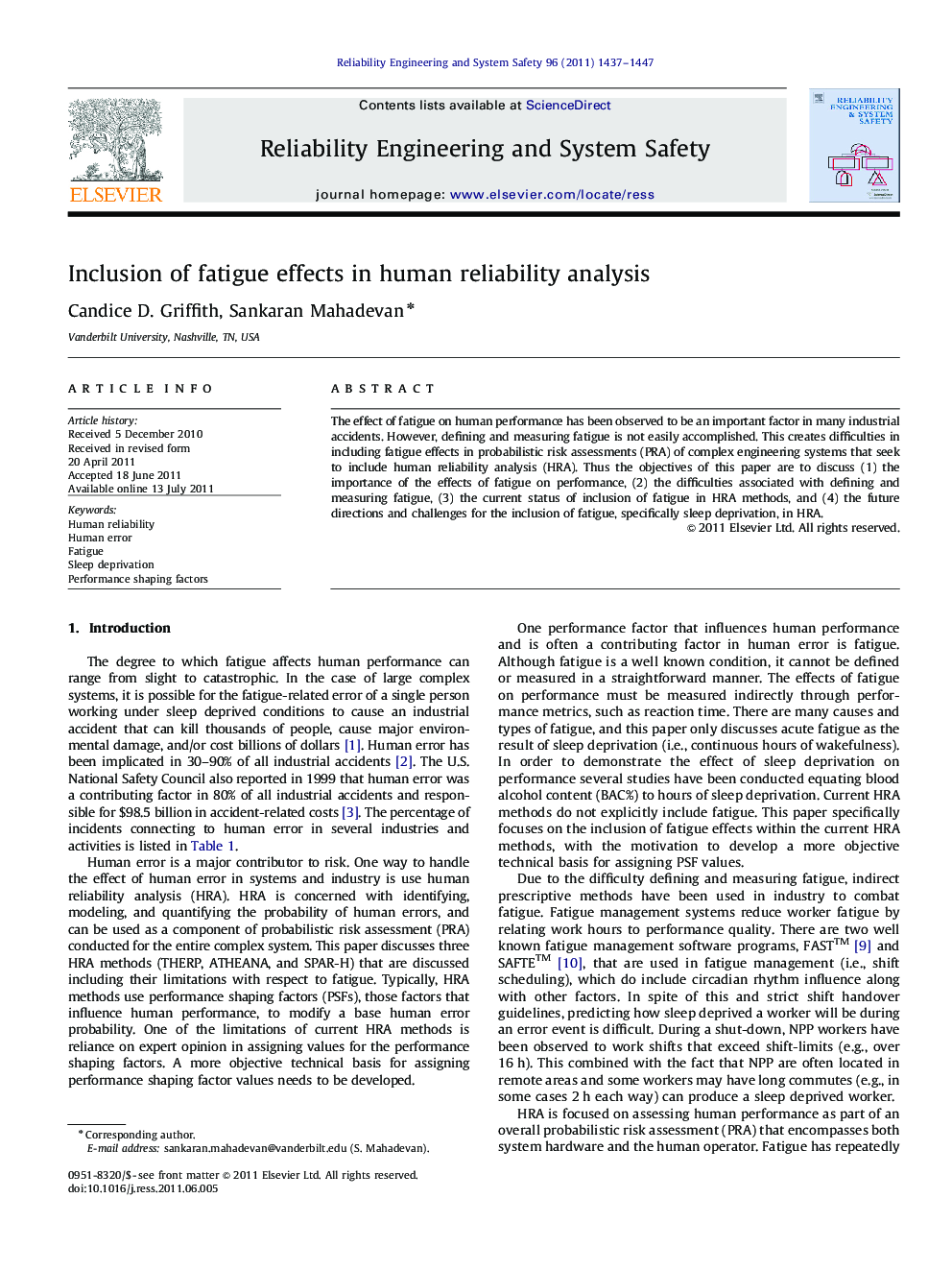| Article ID | Journal | Published Year | Pages | File Type |
|---|---|---|---|---|
| 805779 | Reliability Engineering & System Safety | 2011 | 11 Pages |
The effect of fatigue on human performance has been observed to be an important factor in many industrial accidents. However, defining and measuring fatigue is not easily accomplished. This creates difficulties in including fatigue effects in probabilistic risk assessments (PRA) of complex engineering systems that seek to include human reliability analysis (HRA). Thus the objectives of this paper are to discuss (1) the importance of the effects of fatigue on performance, (2) the difficulties associated with defining and measuring fatigue, (3) the current status of inclusion of fatigue in HRA methods, and (4) the future directions and challenges for the inclusion of fatigue, specifically sleep deprivation, in HRA.
►We highlight the need for fatigue and sleep deprivation effects on performance to be included in human reliability analysis (HRA) methods. Current methods do not explicitly include sleep deprivation effects. ► We discuss the difficulties in defining and measuring fatigue. ► We review sleep deprivation research, and discuss the limitations and future needs of the current HRA methods.
